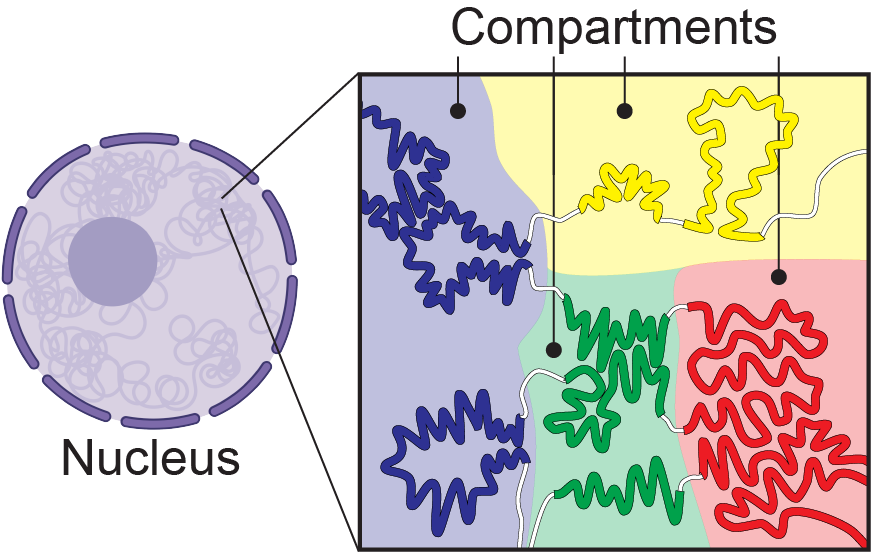Research
The folding and compaction of DNA in nuclei and chromosomes has fascinated biologists for over a century. Active and inactive genes are located in different regions of the nucleus indicating that the spatial organization of DNA influences proper gene regulation. In particular, the spatial segregation of loci into distinct regions, or compartments, of the nucleus impacts diverse areas of biology from aging and cancer to hematopoiesis and olfaction. Additionally, aberrant chromosome compartmentalization in a variety of diseases, including cancer, pathogenically rewires gene expression programs. Defining the pathophysiology of and therapeutically intervening in these diseases will come from insights into how chromosomes are organized within nuclear compartments.
We combine concepts and approaches from biochemistry with methods and analytical tools from cell biology, molecular biology, pharmacology, genomics, and computational biology to determine the molecular basis of how chromosomes are folded in three dimensions and compartmentalized within nuclei. Our long-term goal is to reveal fundamental principles underlying how the folding of chromosomes within nuclear compartments impacts biological function. This will enable new insights into human disease processes and will serve as a basis for developing reversal of aberrant chromatin 3D structure as a novel therapeutic approach for disease treatment.




